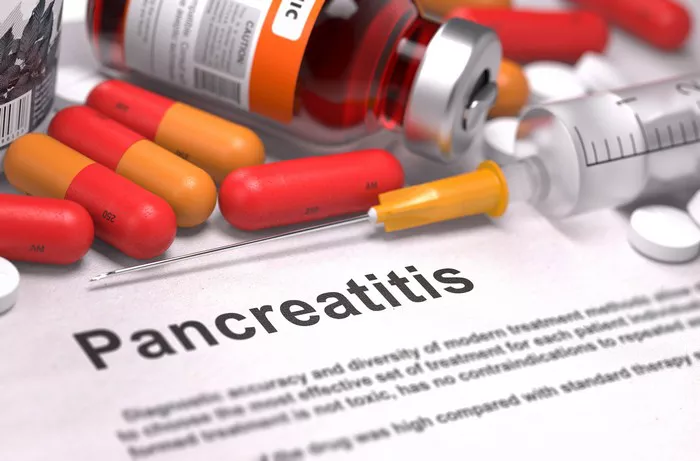Pancreatitis is a condition characterized by inflammation of the pancreas, an organ crucial for digestion and blood sugar regulation. Hyperlipidemia, on the other hand, refers to high levels of lipids (fats) in the blood, including cholesterol and triglycerides. While these two conditions may seem unrelated, there is a growing body of evidence suggesting a potential link between hyperlipidemia and pancreatitis. In this article, we will explore the relationship between hyperlipidemia and pancreatitis, including the mechanisms involved, risk factors, diagnosis, and management strategies.
Understanding Hyperlipidemia and Pancreatitis
Hyperlipidemia is a common metabolic disorder characterized by elevated levels of lipids in the blood. These lipids include cholesterol and triglycerides, which are essential for various bodily functions but can become problematic when present in excessive amounts. Hyperlipidemia is often classified into different types based on the specific lipid involved and the underlying cause.
Pancreatitis, on the other hand, is inflammation of the pancreas, a gland located behind the stomach. The pancreas plays a crucial role in digestion by producing enzymes that help break down food, as well as hormones like insulin that regulate blood sugar levels. When the pancreas becomes inflamed, it can lead to a range of symptoms, including severe abdominal pain, nausea, vomiting, and in severe cases, organ failure.
The Link Between Hyperlipidemia and Pancreatitis
While the exact mechanisms linking hyperlipidemia and pancreatitis are not fully understood, several theories have been proposed. One of the key factors is the role of elevated lipid levels in causing pancreatic injury. Excess lipids in the blood can accumulate in the pancreatic ducts, leading to obstruction and inflammation. This can trigger a cascade of events that contribute to the development of pancreatitis.
Moreover, high levels of triglycerides, a type of lipid, have been specifically implicated in the pathogenesis of pancreatitis. In a condition known as hypertriglyceridemia-induced pancreatitis (HTGP), extremely high triglyceride levels can directly damage pancreatic cells and promote inflammation. Individuals with certain genetic predispositions or underlying metabolic conditions may be more susceptible to developing HTGP.
Risk Factors for Hyperlipidemia-Induced Pancreatitis
Several risk factors increase the likelihood of developing pancreatitis due to hyperlipidemia. These include:
1. Genetic Factors: Inherited disorders such as familial hyperlipidemia can predispose individuals to elevated lipid levels and increase the risk of pancreatitis.
2. Dietary Habits: Consumption of high-fat and high-cholesterol foods can contribute to hyperlipidemia and exacerbate pancreatic inflammation.
3. Obesity: Being overweight or obese is strongly associated with both hyperlipidemia and pancreatitis.
4. Medical Conditions: Certain medical conditions such as diabetes, metabolic syndrome, and gallstones can contribute to the development of hyperlipidemia and pancreatitis.
5. Medications: Some medications, such as certain diuretics, antiretrovirals, and corticosteroids, can increase lipid levels and potentially trigger pancreatitis.
Diagnosing Hyperlipidemia-Induced Pancreatitis
Diagnosing pancreatitis related to hyperlipidemia involves a combination of clinical evaluation, laboratory tests, and imaging studies. Common diagnostic steps include:
1. Medical History and Physical Examination: The healthcare provider will review the patient’s medical history, including any risk factors for hyperlipidemia and pancreatitis, and conduct a physical examination to assess symptoms.
2. Blood Tests: Blood tests are performed to measure lipid levels, including total cholesterol, LDL cholesterol, HDL cholesterol, and triglycerides. Elevated triglyceride levels, typically above 1,000 mg/dL, are often seen in hyperlipidemia-induced pancreatitis.
3. Imaging Studies: Imaging tests such as ultrasound, CT scan, or MRI may be used to visualize the pancreas and detect signs of inflammation or complications.
4. Other Tests: In some cases, additional tests such as pancreatic enzyme levels (amylase, lipase), liver function tests, and genetic testing may be conducted to assess pancreatic function and identify underlying causes.
Management and Treatment Strategies
The management of hyperlipidemia-induced pancreatitis involves addressing both the underlying hyperlipidemia and managing the acute pancreatitis episode. Treatment strategies may include:
1. Lifestyle Modifications: Adopting a healthy diet low in saturated fats and cholesterol, regular exercise, weight management, and avoiding alcohol and tobacco can help manage hyperlipidemia and reduce the risk of pancreatitis.
2. Medications: Depending on the lipid profile and underlying conditions, medications such as statins, fibrates, niacin, and omega-3 fatty acids may be prescribed to lower lipid levels.
3. Pancreatitis Management: In cases of acute pancreatitis, treatment focuses on pain management, fluid and electrolyte balance, nutritional support (sometimes through enteral or parenteral nutrition), and monitoring for complications such as pancreatic necrosis or infection.
4. Follow-Up and Monitoring: Regular follow-up visits with healthcare providers are essential to monitor lipid levels, assess pancreatic function, and adjust treatment as needed.
Conclusion
In conclusion, hyperlipidemia can indeed cause pancreatitis, particularly in individuals with genetic predispositions, poor dietary habits, obesity, and certain medical conditions. Understanding the link between hyperlipidemia and pancreatitis is crucial for early diagnosis, effective management, and prevention of complications. By addressing hyperlipidemia through lifestyle modifications, medications, and appropriate medical care, the risk of pancreatitis and its associated complications can be significantly reduced.


